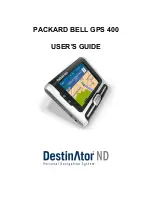
CAP 413
Radiotelephony Manual
Chapter 4 Page 37
NOTE 1:
The phrase 'Deck available (for landing)' replaces the previously used
phrase, 'Deck is clear for landing', in order to avoid any possible confusion
with a landing clearance that may be issued by an Air Traffic Control unit.
For operational purposes, the two terms should be considered to have the
same meaning.
(Offshore station callsign) (Aircraft
callsign) Beacon outbound
(this
indicates the pilot is using the NDB
as a navigational aid to take him
from overhead to a point where he
can safely descend below cloud and
return under visual conditions to the
helideck)
(Aircraft callsign) (Offshore station callsign) Roger
(Offshore station callsign) (Aircraft
callsign) Is the deck available for
landing?
(Aircraft callsign) (Offshore station callsign) Affirm
Deck available (for landing)
or
Deck obstructed,
expect (number) minutes delay,
or
Deck closed due
to (reason), expect (number) minutes delay
Note: Transmission of 'for landing' is optional
(Offshore station callsign) (Aircraft
callsign) Ready for departure
(Aircraft callsign) (Offshore station callsign) Roger
(or pass relevant information)
(Offshore station callsign) (Aircraft
callsign) Departing
(Aircraft callsign) (Offshore station callsign) Roger
(Offshore station callsign) (Aircraft
callsign) Switch off the NDB
(Aircraft callsign) (Offshore station callsign) Wilco
(Offshore station callsign) (Aircraft
callsign) Radio contact with (ATS
Unit), close down the Flight Watch
(Aircraft callsign) (Offshore station callsign) Closing
down Flight Watch
Additionally the following are applicable to vessels:
(Vessel callsign) (Aircraft callsign)
Report position
(Aircraft callsign) (Vessel callsign) Position (lat/long)
(Vessel callsign) (Aircraft callsign)
Report course and speed
(Aircraft callsign) (Vessel callsign) Course and speed
(number) degrees (number) knots
(Vessel callsign) (Aircraft callsign)
Report relative wind (Relative to the
ship's heading)
(Aircraft callsign) (Vessel callsign) Relative wind
Port/Starboard (number) degrees (number) knots
(Vessel callsign) (Aircraft callsign)
Maintain course and speed
(Aircraft callsign) (Vessel callsign) Roger
(Vessel callsign) (Aircraft callsign)
Alter course Port/Starboard
(number) degrees
(Aircraft callsign) (Vessel callsign) Standby. Course
now (number) degrees
(Vessel callsign) (Aircraft callsign)
Change speed to (number) knots
(Aircraft callsign) (Vessel callsign) Standby. Speed
now (number) knots
Table 4
(Continued)
Helicopter
Response
31 March 2011
Summary of Contents for 413
Page 1: ...CAP 413 Radiotelephony Manual Edition 20 www caa co uk Safety Regulation Group ...
Page 2: ......
Page 3: ...CAP 413 Radiotelephony Manual Edition 20 Safety Regulation Group 17 November 2011 ...
Page 6: ...CAP 413 Radiotelephony Manual Amendment Number Amendment Date Incorporated by Incorporated on ...
Page 10: ...INTENTIONALLY LEFT BLANK ...
Page 18: ...INTENTIONALLY LEFT BLANK ...
Page 20: ...INTENTIONALLY LEFT BLANK ...
Page 68: ...INTENTIONALLY LEFT BLANK ...
Page 126: ...INTENTIONALLY LEFT BLANK ...
Page 162: ...INTENTIONALLY LEFT BLANK ...
Page 170: ...INTENTIONALLY LEFT BLANK ...
Page 178: ...INTENTIONALLY LEFT BLANK ...
Page 206: ...INTENTIONALLY LEFT BLANK ...
Page 248: ...INTENTIONALLY LEFT BLANK ...
Page 254: ...INTENTIONALLY LEFT BLANK ...
Page 264: ...INTENTIONALLY LEFT BLANK ...















































